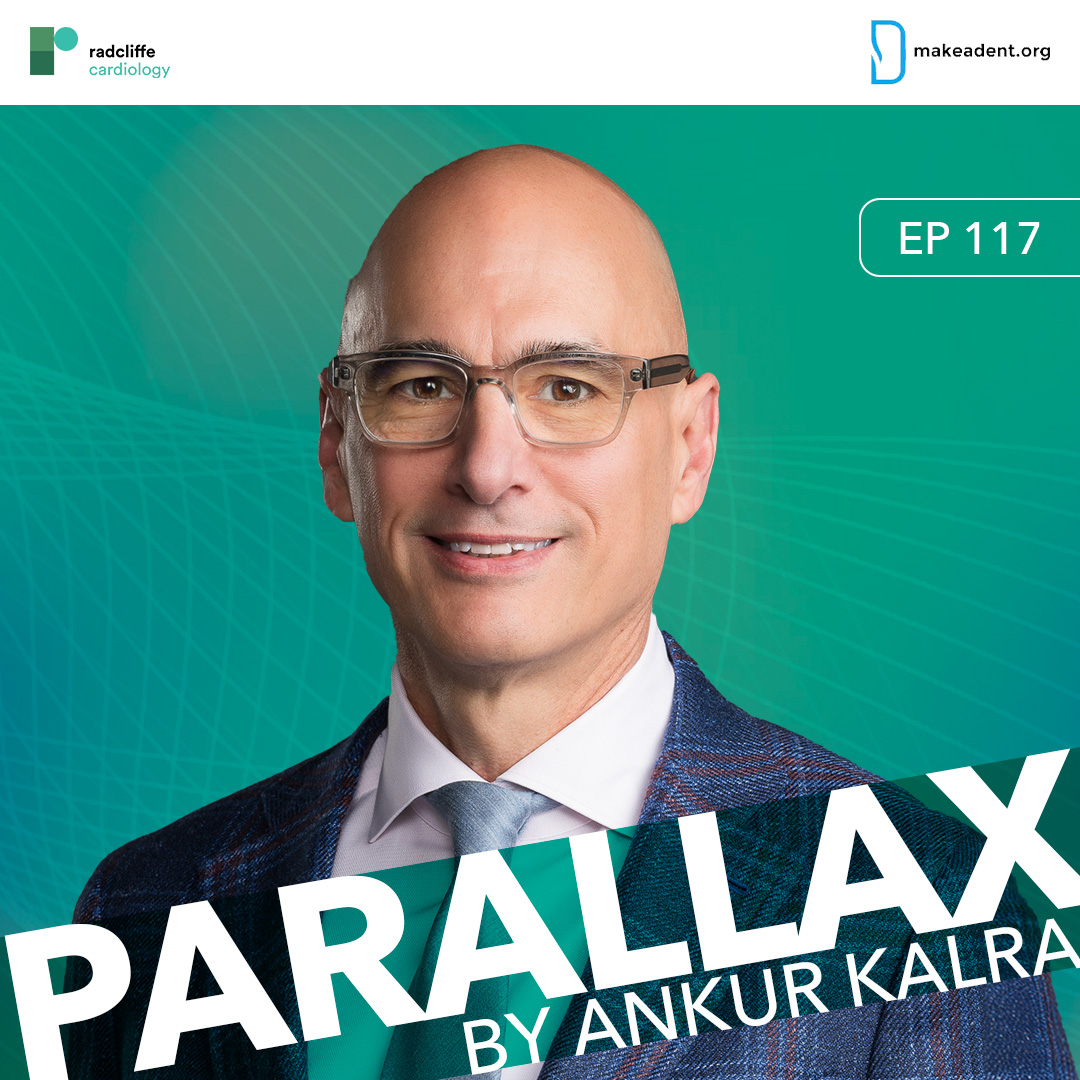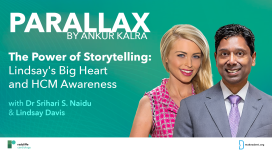
This week on Parallax, Dr Ankur Kalra welcomes Dr Marc Gerdisch to discuss a groundbreaking study on reducing opioid use after cardiac surgery.
Dr Marc Gerdisch is the Chief of Cardiovascular and Thoracic Surgery and Co-Director of the Heart Valve Center and Atrial Fibrillation Program at Franciscan St. Francis Health. He is a senior partner at Cardiac Surgery Associates and a Clinical Assistant Professor of Thoracic and Cardiovascular Surgery at Loyola University Medical Center in Chicago.
Dr Gerdisch shares insights into his research on rigid sternal fixation and enhanced recovery protocols, which have shown promising results in postoperative pain management and patient recovery.
In this episode, Dr Kalra and Dr Gerdisch discuss the specifics of the study, including the four-cohort design and the steps taken to expedite opioid-free recovery. Dr Gerdisch also shares valuable advice on overcoming physician inertia and building a strong case for implementing such a programme, including cost-benefit analysis considerations.
What motivated the study? How can a holistic approach to cardiac surgery recovery be implemented? What advice does Dr Gerdisch have for our listeners?
Sources:
Gerdisch MW, et al. Ann Thorax Surg 2024. Rigid Sternal Fixation and Enhanced Recovery for Opioid-Free Analgesia After Cardiac Surgery. DOI: 10.1016/j.athoracsur.2024.06.032
CE Cox. TCTMD 2024. Holistic Approach to Cardiac Surgery Can Sharply Cut Opioid Use. Available at: www.tctmd.com/news/holistic-appr…ply-cut-opioid-use. Accessed August 12, 2024.



In this episode, Ankur and Danielle speak about the evidence in favour of a whole-food plant-based diet to improve cardiovascular health, the ACC prevention guidelines, how to talk to patients about positive dietary change, the issue of lack of nutrition training in cardiovascular fellowships and what Danielle’s diet looks like as a busy whole-food plant-based cardiology fellow. On her own podcast ‘Nutrition Rounds’ Danielle has discussions about evidence-based plant-based nutrition with physicians who are leading experts in nutrition and health.
Hosted by @AnkurKalraMD. Produced by @RadcliffeCardiology.

In this brilliant conversation, Ankur, Emmanouil and Michael unravel the potential advantages, challenges and practical realities of using drug-coated balloons in SVD, and the findings of the latest randomised controlled trials studying this area.
Hosted by @AnkurKalraMD. Produced by @RadcliffeCardiology. [Disclaimer: The use of drug-coated balloons in coronay intervention is still off-label; it has not been approved by the FDA.]

Dawn is an associate editor of the journal Circulation: Cardiovascular Interventions and is widely known for her research program on PCI and peripheral arterial disease (PAD). Ankur and J. Dawn discuss multiple trials/studies that were published in 2018, including ORBITA, PIONEER-II and ABSORB. J. Dawn also shares her thoughts on the latest stent technologies.
Hosted by @AnkurKalraMD. Produced by @RadcliffeCardiology.

They discuss the importance of preventative medicine, their experience of reducing hypertension with non-pharmaceutical and pharmaceutical methods, and the significance of the integrated “team approach” when treating comorbid conditions such as hypertension. Athena also shares her thoughts on cardiologists’ responsibility to shape their patients’ lifestyle choices.
Hosted by @AnkurKalraMD. Produced by @RadcliffeCardiology.

Chest pain is one of the most common reasons for an emergency room visit in the US, with almost 6 million ER visits annually, yet there is no consensus on how to compare the results from various hscTn assays. Tune in to hear Santiago outline the advantages and limitations of using hscTn as a standard biomarket to evaluate patients with suspected ACS in the ER.
Hosted by @AnkurKalraMD. Produced by @RadcliffeCardiology.







